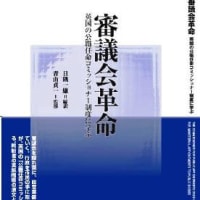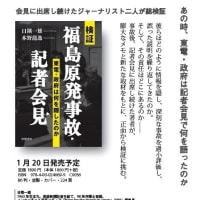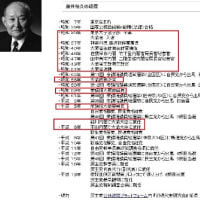
「It is time for the United States to leave Iraq, without any more delay than the Pentagon needs to organize an orderly exit.」米軍はイラクから一刻も早く撤退するべきだ。~一日150人もの爆弾攻撃による被害者が出るようになったいま、ついに、ニューヨークタームズが動いた。「「The Road Home」と題する社説、歴史的に重大な意味を持つことになるだろうこの社説の全文を掲載し、表現の自由の金字塔を飾る資料として保存したいと思います。
日本のメディアも個別の事件で騒ぐのではなく、大きな選択において、堂々と意見を述べてほしい。しかし、こういう重大な記事で日本の動きについて触れらるような政策を、現政権が打ち出すことができなかったのは、とっても悲しむべきことだ。やっぱり、バイバイ、自民党(+公明党)!
まずは、この社説を伝える時事通信(←クリック)の紹介から…。
■■引用開始■■
【ワシントン8日】米紙ニューヨーク・タイムズは8日付の社説で、イラク戦争でブッシュ大統領は既に大義を失っており、イラク駐留米軍を撤退させるべきだと主張した。同紙は紙面の半分を割き、珍しく1本の社説で駐留軍の撤退を訴えている。(写真は、イラク駐留米軍)
同紙は、「我々は多くの米国人と同様に、ブッシュ大統領が十分な大義もなく、国際的な反対にもかかわらず、また戦後の安定化計画も持たずにイラクに侵攻したことによって自らつくりだした災厄から真剣に抜け出そうとする努力の兆候を待ち続け、結論を出すのを先に延ばしてきた。しかし、ブッシュ大統領にそれを行うビジョンも方策もないことが明らかになった」として、米国が一刻の猶予もなく、即時イラクから撤退する時が来たと述べている。
同紙はさらに、ブッシュ大統領が任期の最後まで今の方針を維持し続け、後任者に混乱を押し付けようとしているのは明確だと指摘し、「同大統領の大義がどうであったにせよ、それは既に失われている」と断定している。
同紙は、「米軍兵士を犠牲にし続けるのは間違っている。イラク戦争は米国の同盟と軍事の力をむしばんでいる。それは、米国の力と信念の賢明な適用を必要としている世界に対する背信行為である」と力説している。〔AFP=時事〕
■■引用終了■■
■■ニューヨークタームズ全文引用開始■■
Editorial
「The Road Home」 Published: July 8, 2007
It is time for the United States to leave Iraq, without any more delay than the Pentagon needs to organize an orderly exit.
Like many Americans, we have put off that conclusion, waiting for a sign that President Bush was seriously trying to dig the United States out of the disaster he created by invading Iraq without sufficient cause, in the face of global opposition, and without a plan to stabilize the country afterward.
At first, we believed that after destroying Iraq’s government, army, police and economic structures, the United States was obliged to try to accomplish some of the goals Mr. Bush claimed to be pursuing, chiefly building a stable, unified Iraq. When it became clear that the president had neither the vision nor the means to do that, we argued against setting a withdrawal date while there was still some chance to mitigate the chaos that would most likely follow.
While Mr. Bush scorns deadlines, he kept promising breakthroughs — after elections, after a constitution, after sending in thousands more troops. But those milestones came and went without any progress toward a stable, democratic Iraq or a path for withdrawal. It is frighteningly clear that Mr. Bush’s plan is to stay the course as long as he is president and dump the mess on his successor. Whatever his cause was, it is lost.
The political leaders Washington has backed are incapable of putting national interests ahead of sectarian score settling. The security forces Washington has trained behave more like partisan militias. Additional military forces poured into the Baghdad region have failed to change anything.
Continuing to sacrifice the lives and limbs of American soldiers is wrong. The war is sapping the strength of the nation’s alliances and its military forces. It is a dangerous diversion from the life-and-death struggle against terrorists. It is an increasing burden on American taxpayers, and it is a betrayal of a world that needs the wise application of American power and principles.
A majority of Americans reached these conclusions months ago. Even in politically polarized Washington, positions on the war no longer divide entirely on party lines. When Congress returns this week, extricating American troops from the war should be at the top of its agenda.
That conversation must be candid and focused. Americans must be clear that Iraq, and the region around it, could be even bloodier and more chaotic after Americans leave. There could be reprisals against those who worked with American forces, further ethnic cleansing, even genocide. Potentially destabilizing refugee flows could hit Jordan and Syria. Iran and Turkey could be tempted to make power grabs. Perhaps most important, the invasion has created a new stronghold from which terrorist activity could proliferate.
The administration, the Democratic-controlled Congress, the United Nations and America’s allies must try to mitigate those outcomes — and they may fail. But Americans must be equally honest about the fact that keeping troops in Iraq will only make things worse. The nation needs a serious discussion, now, about how to accomplish a withdrawal and meet some of the big challenges that will arise.
(The Mechanics of Withdrawal)
The United States has about 160,000 troops and millions of tons of military gear inside Iraq. Getting that force out safely will be a formidable challenge. The main road south to Kuwait is notoriously vulnerable to roadside bomb attacks. Soldiers, weapons and vehicles will need to be deployed to secure bases while airlift and sealift operations are organized. Withdrawal routes will have to be guarded. The exit must be everything the invasion was not: based on reality and backed by adequate resources.
The United States should explore using Kurdish territory in the north of Iraq as a secure staging area. Being able to use bases and ports in Turkey would also make withdrawal faster and safer. Turkey has been an inconsistent ally in this war, but like other nations, it should realize that shouldering part of the burden of the aftermath is in its own interest.
Accomplishing all of this in less than six months is probably unrealistic. The political decision should be made, and the target date set, now.
(The Fight Against Terrorists)
Despite President Bush’s repeated claims, Al Qaeda had no significant foothold in Iraq before the invasion, which gave it new base camps, new recruits and new prestige.
This war diverted Pentagon resources from Afghanistan, where the military had a real chance to hunt down Al Qaeda’s leaders. It alienated essential allies in the war against terrorism. It drained the strength and readiness of American troops.
And it created a new front where the United States will have to continue to battle terrorist forces and enlist local allies who reject the idea of an Iraq hijacked by international terrorists. The military will need resources and bases to stanch this self- inflicted wound for the foreseeable future.
(The Question of Bases)
The United States could strike an agreement with the Kurds to create those bases in northeastern Iraq. Or, the Pentagon could use its bases in countries like Kuwait and Qatar, and its large naval presence in the Persian Gulf, as staging points.
There are arguments for, and against, both options. Leaving troops in Iraq might make it too easy — and too tempting — to get drawn back into the civil war and confirm suspicions that Washington’s real goal was to secure permanent bases in Iraq. Mounting attacks from other countries could endanger those nations’ governments.
The White House should make this choice after consultation with Congress and the other countries in the region, whose opinions the Bush administration has essentially ignored. The bottom line: the Pentagon needs enough force to stage effective raids and airstrikes against terrorist forces in Iraq, but not enough to resume large-scale combat.
■■その2へ続く■■
★「憎しみはダークサイドへの道、苦しみと痛みへの道なのじゃ」(マスター・ヨーダ)
★「政策を決めるのはその国の指導者です。そして,国民は,つねにその指導者のいいなりになるように仕向けられます。方法は簡単です。一般的な国民に向かっては,われわれは攻撃されかかっているのだと伝え,戦意を煽ります。平和主義者に対しては,愛国心が欠けていると非難すればいいのです。このやりかたはどんな国でも有効です」(ヒトラーの側近ヘルマン・ゲーリング。ナチスドイツを裁いたニュルンベルグ裁判にて)
※このブログのトップページへはここ←をクリックして下さい。過去記事はENTRY ARCHIVE・過去の記事,分野別で読むにはCATEGORY・カテゴリからそれぞれ選択して下さい。
また,このブログの趣旨の紹介及びTB&コメントの際のお願いはこちら(←クリック)まで。転載、引用大歓迎です。なお、安倍辞任までの間、字数が許す限り、タイトルに安倍辞任要求を盛り込むようにしています(ここ←参照下さい)。
日本のメディアも個別の事件で騒ぐのではなく、大きな選択において、堂々と意見を述べてほしい。しかし、こういう重大な記事で日本の動きについて触れらるような政策を、現政権が打ち出すことができなかったのは、とっても悲しむべきことだ。やっぱり、バイバイ、自民党(+公明党)!
まずは、この社説を伝える時事通信(←クリック)の紹介から…。
■■引用開始■■
【ワシントン8日】米紙ニューヨーク・タイムズは8日付の社説で、イラク戦争でブッシュ大統領は既に大義を失っており、イラク駐留米軍を撤退させるべきだと主張した。同紙は紙面の半分を割き、珍しく1本の社説で駐留軍の撤退を訴えている。(写真は、イラク駐留米軍)
同紙は、「我々は多くの米国人と同様に、ブッシュ大統領が十分な大義もなく、国際的な反対にもかかわらず、また戦後の安定化計画も持たずにイラクに侵攻したことによって自らつくりだした災厄から真剣に抜け出そうとする努力の兆候を待ち続け、結論を出すのを先に延ばしてきた。しかし、ブッシュ大統領にそれを行うビジョンも方策もないことが明らかになった」として、米国が一刻の猶予もなく、即時イラクから撤退する時が来たと述べている。
同紙はさらに、ブッシュ大統領が任期の最後まで今の方針を維持し続け、後任者に混乱を押し付けようとしているのは明確だと指摘し、「同大統領の大義がどうであったにせよ、それは既に失われている」と断定している。
同紙は、「米軍兵士を犠牲にし続けるのは間違っている。イラク戦争は米国の同盟と軍事の力をむしばんでいる。それは、米国の力と信念の賢明な適用を必要としている世界に対する背信行為である」と力説している。〔AFP=時事〕
■■引用終了■■
■■ニューヨークタームズ全文引用開始■■
Editorial
「The Road Home」 Published: July 8, 2007
It is time for the United States to leave Iraq, without any more delay than the Pentagon needs to organize an orderly exit.
Like many Americans, we have put off that conclusion, waiting for a sign that President Bush was seriously trying to dig the United States out of the disaster he created by invading Iraq without sufficient cause, in the face of global opposition, and without a plan to stabilize the country afterward.
At first, we believed that after destroying Iraq’s government, army, police and economic structures, the United States was obliged to try to accomplish some of the goals Mr. Bush claimed to be pursuing, chiefly building a stable, unified Iraq. When it became clear that the president had neither the vision nor the means to do that, we argued against setting a withdrawal date while there was still some chance to mitigate the chaos that would most likely follow.
While Mr. Bush scorns deadlines, he kept promising breakthroughs — after elections, after a constitution, after sending in thousands more troops. But those milestones came and went without any progress toward a stable, democratic Iraq or a path for withdrawal. It is frighteningly clear that Mr. Bush’s plan is to stay the course as long as he is president and dump the mess on his successor. Whatever his cause was, it is lost.
The political leaders Washington has backed are incapable of putting national interests ahead of sectarian score settling. The security forces Washington has trained behave more like partisan militias. Additional military forces poured into the Baghdad region have failed to change anything.
Continuing to sacrifice the lives and limbs of American soldiers is wrong. The war is sapping the strength of the nation’s alliances and its military forces. It is a dangerous diversion from the life-and-death struggle against terrorists. It is an increasing burden on American taxpayers, and it is a betrayal of a world that needs the wise application of American power and principles.
A majority of Americans reached these conclusions months ago. Even in politically polarized Washington, positions on the war no longer divide entirely on party lines. When Congress returns this week, extricating American troops from the war should be at the top of its agenda.
That conversation must be candid and focused. Americans must be clear that Iraq, and the region around it, could be even bloodier and more chaotic after Americans leave. There could be reprisals against those who worked with American forces, further ethnic cleansing, even genocide. Potentially destabilizing refugee flows could hit Jordan and Syria. Iran and Turkey could be tempted to make power grabs. Perhaps most important, the invasion has created a new stronghold from which terrorist activity could proliferate.
The administration, the Democratic-controlled Congress, the United Nations and America’s allies must try to mitigate those outcomes — and they may fail. But Americans must be equally honest about the fact that keeping troops in Iraq will only make things worse. The nation needs a serious discussion, now, about how to accomplish a withdrawal and meet some of the big challenges that will arise.
(The Mechanics of Withdrawal)
The United States has about 160,000 troops and millions of tons of military gear inside Iraq. Getting that force out safely will be a formidable challenge. The main road south to Kuwait is notoriously vulnerable to roadside bomb attacks. Soldiers, weapons and vehicles will need to be deployed to secure bases while airlift and sealift operations are organized. Withdrawal routes will have to be guarded. The exit must be everything the invasion was not: based on reality and backed by adequate resources.
The United States should explore using Kurdish territory in the north of Iraq as a secure staging area. Being able to use bases and ports in Turkey would also make withdrawal faster and safer. Turkey has been an inconsistent ally in this war, but like other nations, it should realize that shouldering part of the burden of the aftermath is in its own interest.
Accomplishing all of this in less than six months is probably unrealistic. The political decision should be made, and the target date set, now.
(The Fight Against Terrorists)
Despite President Bush’s repeated claims, Al Qaeda had no significant foothold in Iraq before the invasion, which gave it new base camps, new recruits and new prestige.
This war diverted Pentagon resources from Afghanistan, where the military had a real chance to hunt down Al Qaeda’s leaders. It alienated essential allies in the war against terrorism. It drained the strength and readiness of American troops.
And it created a new front where the United States will have to continue to battle terrorist forces and enlist local allies who reject the idea of an Iraq hijacked by international terrorists. The military will need resources and bases to stanch this self- inflicted wound for the foreseeable future.
(The Question of Bases)
The United States could strike an agreement with the Kurds to create those bases in northeastern Iraq. Or, the Pentagon could use its bases in countries like Kuwait and Qatar, and its large naval presence in the Persian Gulf, as staging points.
There are arguments for, and against, both options. Leaving troops in Iraq might make it too easy — and too tempting — to get drawn back into the civil war and confirm suspicions that Washington’s real goal was to secure permanent bases in Iraq. Mounting attacks from other countries could endanger those nations’ governments.
The White House should make this choice after consultation with Congress and the other countries in the region, whose opinions the Bush administration has essentially ignored. The bottom line: the Pentagon needs enough force to stage effective raids and airstrikes against terrorist forces in Iraq, but not enough to resume large-scale combat.
■■その2へ続く■■
★「憎しみはダークサイドへの道、苦しみと痛みへの道なのじゃ」(マスター・ヨーダ)
★「政策を決めるのはその国の指導者です。そして,国民は,つねにその指導者のいいなりになるように仕向けられます。方法は簡単です。一般的な国民に向かっては,われわれは攻撃されかかっているのだと伝え,戦意を煽ります。平和主義者に対しては,愛国心が欠けていると非難すればいいのです。このやりかたはどんな国でも有効です」(ヒトラーの側近ヘルマン・ゲーリング。ナチスドイツを裁いたニュルンベルグ裁判にて)
※このブログのトップページへはここ←をクリックして下さい。過去記事はENTRY ARCHIVE・過去の記事,分野別で読むにはCATEGORY・カテゴリからそれぞれ選択して下さい。
また,このブログの趣旨の紹介及びTB&コメントの際のお願いはこちら(←クリック)まで。転載、引用大歓迎です。なお、安倍辞任までの間、字数が許す限り、タイトルに安倍辞任要求を盛り込むようにしています(ここ←参照下さい)。














